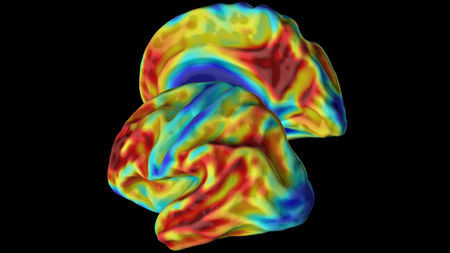A woman with an Alzheimer’s-causing mutation and lots of beta-amyloid buildup (red, above) in her brain remained cognitively healthy for decades.
Aaron Schultz
In 2016, a 73-year-old woman from Medellín, Colombia, flew to Boston so researchers could scan her brain, analyze her blood, and pore over her genome. She carried a genetic mutation that had caused many in her family to develop dementia in middle age. But for decades, she had avoided the disease. The researchers now report that another rare mutation—this one in the well-known Alzheimer’s disease risk gene APOE—may have protected her. They can’t prove this mutation alone staved off disease. But the study draws new attention to the possibility of preventing or treating Alzheimer’s by targeting APOE—an idea some researchers say has spent too long on the sidelines.
“This case is very special,” says Yadong Huang, a neuroscientist at the Gladstone Institutes in San Francisco, California, who was not involved with the research. “This may open up a very promising new avenue in both research and therapy.”
APOE, the strongest genetic risk factor for Alzheimer’s, has three common forms. A variant called APOE2 lowers risk of the disease. The most common variant, APOE3, doesn’t influence risk. APOE4 raises risk; roughly half of the people with the disease have at least one copy of this variant.
Researchers…



